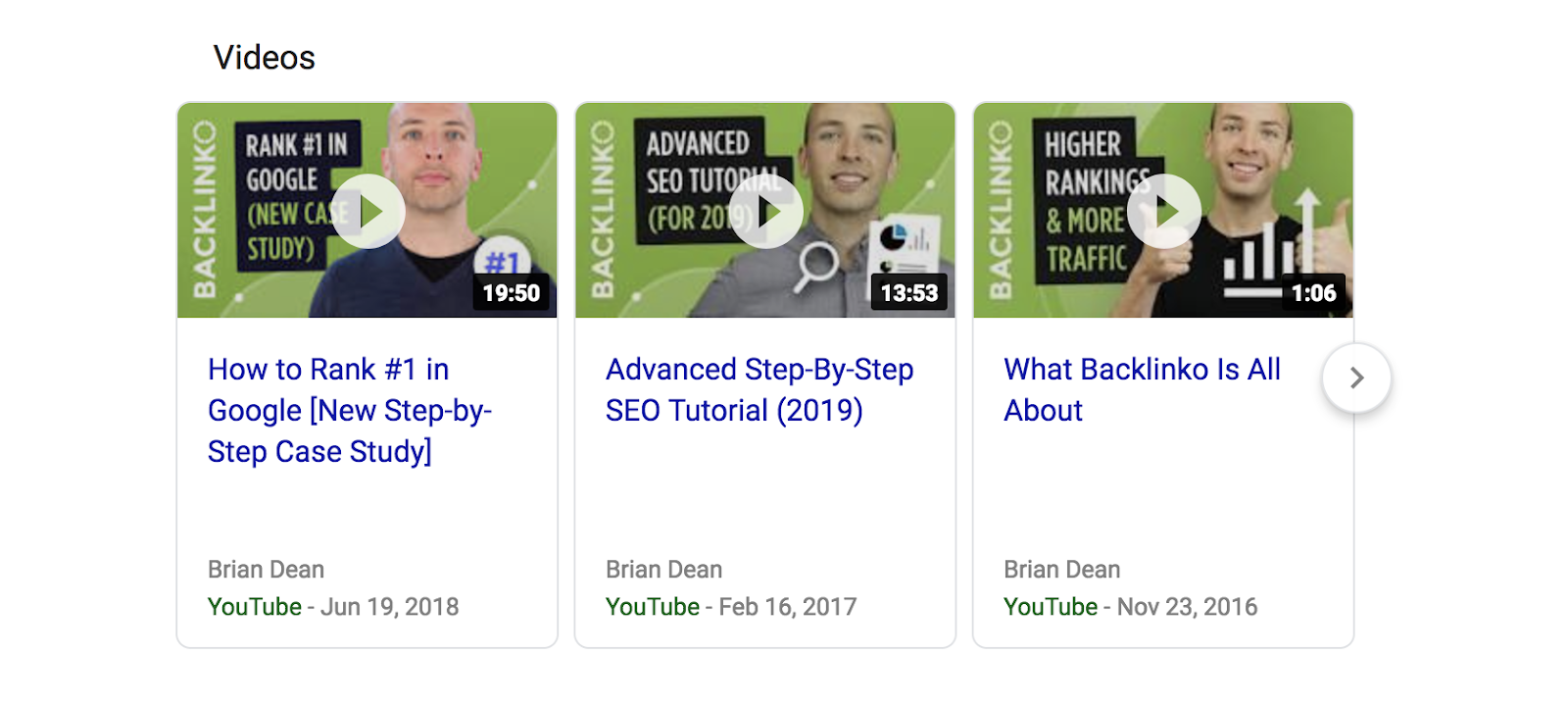
Content Crafters is an interview series where we de-construct the tools, tips, and tactics that top bloggers use to get so much work done. you’ll walk away in mere minutes with actionable takeaways you can try out right away. Let’s dive in!
Jimmy Daly is the Marketing Director at Animalz, a premium content marketing agency, and has been a long time B2B content marketer.
Previous to heading up marketing at Animalz, Jimmy ran content at Vero and Quickbooks, and he’s also advised Fortune 500 companies, worked in account management, and started successful blogs from scratch.
In addition, his writing at Animalz represents some of the most original, lucid, and useful blog posts about content marketing I’ve read. If you need a primer, I recommend starting with these three posts:
Without further ado, let’s dive into the interview.

I started working in content marketing kind of by accident.
A family friend ran a web design agency. Some of their clients starting asking about SEO, so they started getting into that, as well as writing content. Anyway, he started putting together a team of freelance content writers. I was fresh out of college and an English major, which he was aware of. I don’t know that there was anything else besides that, actually.
He offered me a freelance writing gig, so I started writing these 250 word articles for about $30 each. I was just so excited that someone was going to pay me to write that I was happy to write about pretty much anything. At that time, I was writing content marketing for lawyers, so like “5 reasons why you need a DUI attorney in Topeka Kansas” type of stuff. But it was fun, and I learned a lot.
That was kind of the catalyst that led me down this path, which has been interesting and adventurous and ever-changing.
I love what I do because I have the opportunity to work with a lot of smart people, to work in an industry that is thriving and changing all the time.
And I love it the most because there are so many interesting and unexpected opportunities that have popped up mostly just because my name is on blog posts all over the internet and that has been great for job opportunities, for helping land clients. I love that about content marketing.
I’m going to be honest with you: I was a terrible student. I had an awful GPA. I barely graduated college.
I chose English to study because I hated taking tests, and I enjoyed writing.
The thing that has been the most beneficial is that I just spent a lot of time in my late teens and early twenties writing. That established a habit of doing it.
I realized somewhere in there that I liked doing it, and I hoped one day to find a field where I could be payed to do it professionally. But in terms of what period did I like or dislike, honestly, it was just about getting by.

In many ways it did set me up for a career that has gone great and I’m excited about, but I was not a very good student. Interestingly I’m a good student now. Like I love to read, and I love to network with people. I love to write. I sort of stripped away all of the things that I consider to be frivolous about the academic world, and I’m able to focus on the stuff I’m really interested in.
Yes, absolutely there are counter examples.
First, I should clarify that the concept is being applied primarily to B2B SaaS. I’m sure there are elements of it that apply to other areas, but that’s the way I’m thinking about this. The one counter example that I love to bring up here is Intercom.
Intercom publishes content multiple times a week, and it’s always by subject matter experts. They succeed as a publication because they have budget and manpower in a long run way. So their content team internally is made up of 10 or 12 people. Those people are not actually writing – well sometimes they are – but for the most part they are facilitating writing by subject matter experts at the company.

So, if they want to write about sales or design or development, a content person isn’t doing that. A sales person or a developer is doing that with the help of a content person. The content person helps them refine the idea, works with them through the drafts, and gets their words out there.
This way, you avoid this problem in content marketing where subject matter experts aren’t writing. This is a fundamental problem in content marketing.
As Intercom has shown, it can work. Their blog is large, successful, highly regarded, but it’s also very expensive to do it this way.
So, are their counter examples? Yes, in the sense that sure you can grow a lot of traffic that way. I’m unaware of a counter example where a site is run like a publication and done so on the cheap. And I think that’s an important distinction to make.
The most egregious mistake that a lot of people make is probably faking it.
So, going back to the Intercom example, content marketing is often tasked to people with writing experience but not hands-on domain expertise in the field that they’re writing on. This creates so many problems.
You’re paying money for content that is often “looks like a duck, quacks like a duck,” but there’s no substance to it. It creates problems because you end up with a lot of content, but only a handful of posts are successful. You end up having to go prune that stuff later.
You also earn a reputation, for better or for worse, for the content that you do that can be hard to undo later on.
So my advice is – whether a content person is tasked with doing the writing themselves or if they’ll facilitate writing by experts – don’t fake it.
I’ve written about this before, but there are a lot of ways to write like an expert when you aren’t an expert.
For instance, you can do this by interviewing people, ghost writing on behalf of people who really know what they’re doing. If you have a developer on your team and you’re trying to reach other developers, you’re better off ghost writing an article on behalf of your developer with interviews with them than you trying to fake it yourself.
Another thing you can do is run experiments. So, this is doing something in the field and then reporting back on it. A simple example is Buffer. A few years ago, they stopped publishing new content for 30 days, did a bunch of other things to improve their website, and then reported on it.
And it’s a really simple experiment that’s highly relevant to the people they’re trying to reach.

What’s the most earnest mistake people make? That’s a good question.
I think, unfortunately, that’s assuming that anyone will care what you have to say – which is kind of harsh, but it’s crowded out there. There are so many people publishing content, and so little of it is actually interesting.
Especially for people who are newer to content marketing, the assumption is that if you write something there’s a built in audience, which just isn’t true.
It’s not like college, where a professor has to read your writing in order to grade it. There’s an audience of zero unless you earn an audience of one or more. This is probably more of a naive belief than an earnest one, but it’s something that is hard to stomach.
However, it’s something that all content marketers have to get over at some point in order to be successful in this field.
That’s a good question and I don’t know that I have a great answer for it. I can tell you that we started a podcast here at Animalz. The strategy for it, the formatting, the concept, the distribution – everything is different. It’s all unfamiliar territory for us because our speciality is creating written content.
I guess it depends on what you’re trying to accomplish.
Say I’m running content marketing at a B2B SaaS company and I have a nice budget and good resources. In that case, yeah, absolutely. I want to build a strategy that is going to account for all the different mediums.

If, on the other hand, I’m a team of one and trying to do things really lean, then I’m going to focus on written content because it’s easier for a single person to do it well, make it polished, and distribute it. That’s my guess anyway.
Certainly there are good examples of audio and video content that is done by a single person, but it’s usually unpolished. I’m thinking of YouTubers – some do this really well. It’s going to be harder to do that in a business context, but I’m happy to be wrong about that too. I’d love to see someone do it and do it well.
So I guess to summarize: if you have the budget, yes it should be cohesive. If you don’t, look for the lever that is going to get you the biggest results and focus there.
Writing skills.
Good writing skills are necessary but they’re also only one piece of what makes a content marketer good at their job.
Particularly when we’re hiring, not only do we need people who can write but we need people who can manage accounts. We need people who can advise on content strategy. We need people who can identify technical SEO issues. And none of those things can be figured out in a writing sample.
The other thing about writing samples is they’ve often been through multiple rounds of edits before it was published. So if I were to send you a writing sample, it is somewhat representative of my writing abilities. But it also doesn’t clearly communicate to you that it was likely been through many revisions, touched by several editors. So writing skills also depend on the quality of the editor you’re working with.
In summary, you have to look at writing skills, but you have to be wary about what exactly you’re evaluating and how accurately those skills are being represented.
At Animalz, we are hiring all the time. We’re an agency, so we need people who can write, manage accounts, get on a customer call, be comfortable and confident. We also need people who understand content marketing, are good writers, but also who’re just generally good communicators.
This is an underrated skill.
Do these people send prompt follow up emails? Are they are very clear about each person will do and what the next steps are? Are they good on calls, good listeners? Do they take lots of notes, or do they let things slip through the cracks?
If something comes up on a call, a good employee will get it jotted down and taken care of later. They make the person on the other end of that call feel at ease.
It’s sometimes hard to analyze this skill in an interview situation because a lot of people send the fluffy kind of follow up emails (“it was great to meet you, looking forward to hearing back,” that type of thing).
It’s about listening as much as it is talking, and it’s about making it clear that you’re on top of things – that you are in control of what’s going on and that you’re going to get things done. I feel like that’s a little vague, but hope that’s a useful answer.
This is one that’s so difficult to parse out.
Certainly, there are people who are lone wolves who are really, really good at content naturally. But I can think of many examples of people who came into this world, myself included, that really weren’t lone wolves and needed a little bit of help. I needed to get momentum until I was confident enough to really start making progress on my own. So it’s some mix.
I think that mentors in this space are absolutely necessary though. Hopefully, wherever you work, there are mentors available for some of the technicals skills, like writing.
Hopefully you have access to great editors. Editors can be amazing mentors because working with a great editor is almost always the best way to level up your writing skills.
Hopefully you also have access to someone who understands content from a business perspective.
Great writing is nice, but if it doesn’t help pay the bills then it’s no longer a feasible product to sell. As a content marketer, you have to come to terms with the value that you provide to the business. For this, it’s really helpful to have someone more experienced in marketing or sales or entrepreneurship that can kind of help you get better at business, because that helps you get better at content marketing.
I like to tell our writers that content strategy is a subset of business strategy, so whenever we work with new clients it’s super important to understand the product, the market, their pricing structure, their target audience, etc.
That’s all stuff related to business strategy, but it informs content strategy. The better you get as a content marketer at understanding business strategy, the better you’re going to be at doing your job.
I always thought it would be cool to be a programmer. I’ve taken some half-hearted stabs at learning to code in the past, but I’ve never given it the time and attention it deserves.
Another thing I wouldn’t mind doing is a job that’s not at a computer – like a ski instructor or a park ranger. Something where you’re outdoors and moving.

But I think realistically if I didn’t work in this space, I would do my best to learn to code and become a programmer.
I think it’s about having the full set of skills – writing, great communication, able to build good relationships with the clients or people you work with, being able to promote and distribution content.
It’s also about being able to identify great ideas, turn them into blog posts, and get them out there.
It’s a pretty big leap to go from interesting idea to popular blog post. The people that can connect those dots are really successful.
Also, some level of analytical insight. I think all content marketers should be really comfortable in spreadsheets. In some cases, they should even be able to write SQL so that they can really dive into the data.
So yeah, it’s about having the full complement of skills.
…actually, sorry, you were asking about attitude. This is kind of a weird answer, but here’s what I think:
Really good content marketers are often people that – whether it’s conscious or not – are thinking about content creation as a phase of a career (which will then lead to something else).
It’s a foundation for a career in marketing, sales, support, or something else. At least in the B2B content marketing space, it’s a little dangerous to think of yourself as a “content marketer” forever.
I think it’s really useful to think of the years you spend as a content creator as building a foundation for a career in business. “Business,” meaning hopefully you’re moving beyond content at some point, or maybe you could oversee a content program as opposed to being in the weeds.
Or maybe you manage sales. Or you become a VP. Or whatever. It’s like, you have to learn to take the skills and scale them beyond just writing, because content marketing/content creation as a career has a lower ceiling than management or other forms of being an individual contributor.
People who have that foresight and that vision are the ones who end up having really successful careers.
I’m really fortunate to work at an agency where we have a bunch of amazing customers all with very unique problems asking us to help them with content and paying us for it.
So all day long, every single day, I’m looking at all these different companies trying to understand the challenges they have and trying to help them do better with content marketing. If you do that all day every day, you just think about content marketing a lot. Hopefully you’re able to derive some great ideas that you can then end up writing about.
I find that writing for the Animalz blog is easy in the sense that I just have an infinite stream of content marketing related challenges to work on, and then I can write about the actual experience of doing it.
In addition to that, I do read a lot.

I read some business books, but I also love a good novel. I love memoirs, biographies, autobiographies, and I feel like I do get a lot from that that I end up applying to content marketing, or at least quality writing.
I would recommend reading in whatever field interests you, whether it’s business-related or not.
1. Understand the difference between writer-centric writing and reader-centric writing.
When I’m editing a piece, I will often start reading it and then tell our writer, “just cut the first two or three sentences, I can see that you’re warming up.” In those first few sentences, normally you’re warming your mind up, but it’s in the wrong order for the reader.
It’s in the right order for you because it’s how you’re thinking about it, but it’s the wrong order for the reader because it basically goes from interesting to slightly interesting to finally getting to the interesting stuff, and so on. So getting rid of the throat clearing is the easiest way to improve your writing.
2. Try different formats.
So much of the content marketing we see out there is the adult version of the five paragraph essay: introduction, point 1, point 2, point 3, conclusion.
Force yourself to write in different formats.
It can be simple. It could be a listicle, I could be more of a narrative approach, where you’re trying to tell a story and you’re actually not that worried about what the format looks like. But trying different article structures is a creative constraint that helps you think more closely about how you’re presenting information.
3. One idea, one article.
A problem I see all the time in content marketing is where people try to accomplish too much in a single article.
Part of this is inexperienced writing, but part of it is all this unfortunate data that longer posts perform better in search.
I think it’s super important, especially for newer writers, to understand how important it is for an article to reflect only a single idea. Once you start trying to cram stuff in there, the writing degrades quickly.
To that end, I think it’s really important to either write good outlines or workshop the ideas before you start writing. If you don’t workshop an idea before you start writing, you find out later when someone edits it that you’ve tried to accomplish too much or you’ve gone off track.
For example, I was just writing an article for the Animalz blog this week about cross-cutting, and I realized halfway through the article that I had to re-work the whole thing to accomplish what I then I realized needed to be written. Basically, I should have workshopped the topic ahead of time.
I’ve been doing this for almost 10 years, and I still forget this.
Sit down with a pen and piece of paper and workshop the idea so that it’s clear in your mind before you start writing the actual article. It’s just inefficient to write 500 or 750 words and then realize, “ugh, I’ve gotta go do this again because I finally figured out what I have to say.”
I know that some people think of this as a good way to explore their thinking on a topic, but I think it’s better do that ahead of writing the article. So that’d be my third tip.